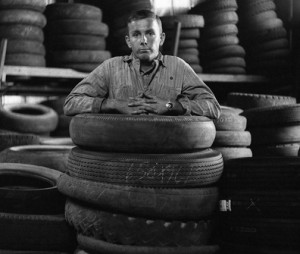Everyone should be poor to begin with, if only because if you have been poor, you’ll never feel the need to be rich. You will never yearn for a yacht, a luxury sports car, designer clothes, fancy food or a second home. You’ll be perfectly content having just one home and sufficient money in the bank that you can afford to shop for groceries at Costco. You’ll derive more pleasure from a four-pound jar of Kirkland brand animal crackers than Daniel Sterling will ever get from what’s her name? And I’m not even going to look it up because in fact it’s not her real name. Nor is Dan Sterling’s his.
If you’ve been poor, then you probably won’t ever bother to change your name. You’ll stick with what you started out with, mainly because it costs money to change one’s name. And you won’t waste money getting a nose job or a boob job, because poverty has taught you that boobs and noses aren’t what matter most. What matters most is having a roof over your head, clothes on your back, food in the fridge, and no wolf scratching at the door.
When I first moved to Salt Lake I was poor. How poor was I? Well, once my library card was confiscated because I couldn’t pay a fifty-cent fine. That’s right! I did not have fifty cents to my name. At the time, I was living in the basement of the Cadillac Motel on Twenty-First and Main, along with two other guys from my hometown. All of us were struggling to get by, including Steve Burton, who was so poor that he couldn’t afford to invite a friend to lunch.
“I can’t think of anything more depressing than eating alone,” he lamented.
“How about starving alone?” I responded.
By and by I moved uptown, to an apartment closer to the university where I would have been a student had I been able to afford tuition. In order to fend off starvation, I struck a deal with some girls from a commune in the western Utah desert. For ten dollars per month, they would feed me ONE square meal a day! Which is all a poor person really needs in order to sustain minimal bodily function.
Unfortunately, the jobs I could find in those days required maximum bodily function. One I remember in particular was at a planning mill, catching and stacking boards as they came shooting off a machine called a joiner. Now and again a joint would fail and the board would split, sending jagged shards flying in my direction. All the while I was weaving and ducking projectiles I was being taunted by the foreman, a snot-nosed kid who had gotten his job through a family connection, for which he was terribly proud.
“Hey, college boy!” he’d shout in my direction. “Hurry up! Get up off the floor! Get the lead out! Stack them boards straight! Didn’t nobody ever tell you that work worth doing is worth doing well?”
“I have heard that,” I replied. “And I believe it. Now, please tell me, is there any work around here that is actually worth doing?”
I lasted only two weeks at Slaveco, which is pretty good, actually. Turnover, thanks to daily accidents, was high. I’m surprised they didn’t give me a gold watch.
The only benefit of suffering—if there be a benefit—is the satisfaction I get today from NOT suffering. Also, from writing about suffering, and from telling my son about how much I suffered when I was his age. Years from now, he can tell his own kids how much he suffered when he was young—from being forced to hear, over and over, about how much his poor old man had suffered.
